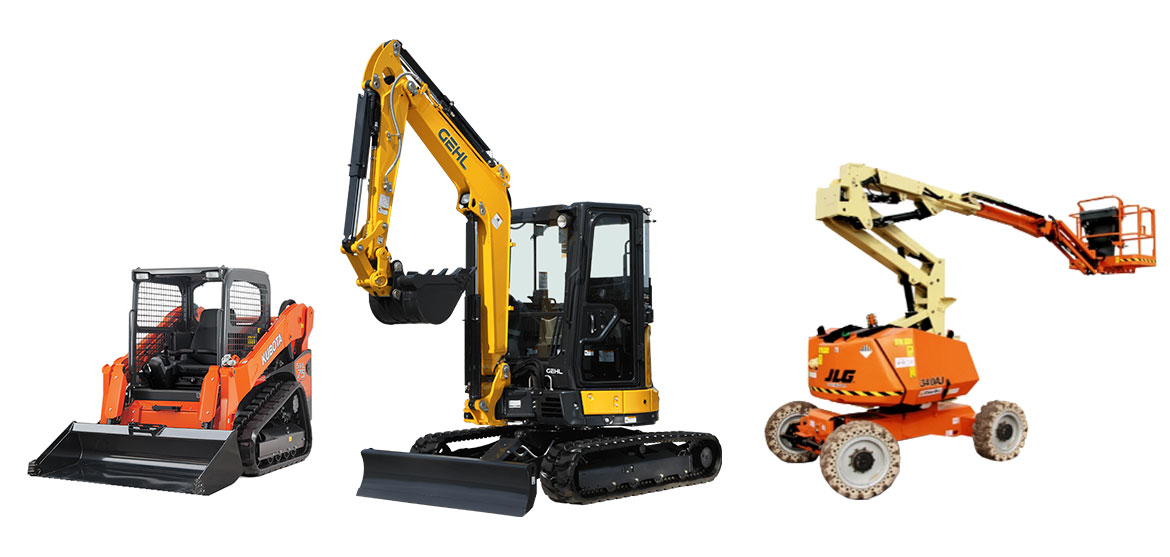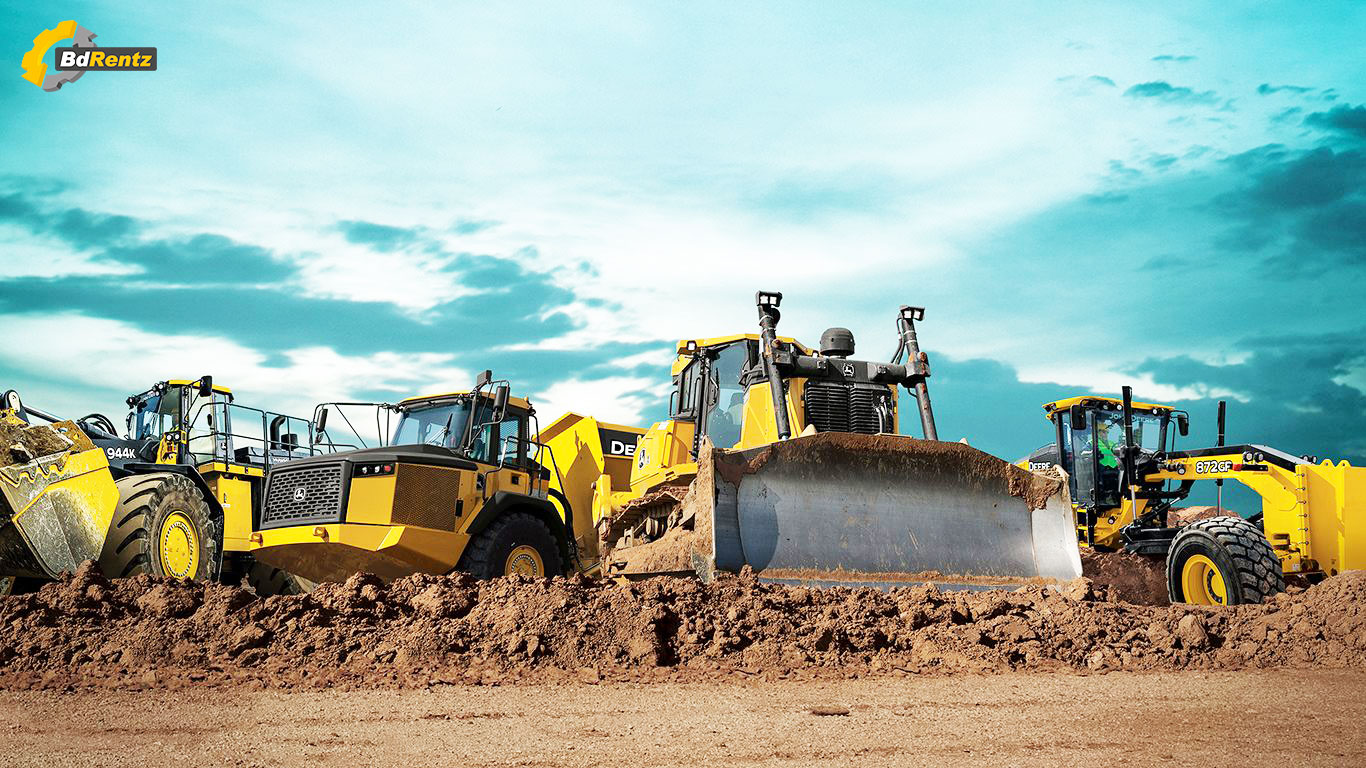Construction Equipment Rentals: Sturdy Equipment for Your Projects
Optimize Your Budget Plan by Understanding the Expenses Associated With Construction Tools Leasings
Understanding the complete extent of expenses related to building and construction devices rentals is critical for optimizing your budget plan. While the initial rental cost may appear uncomplicated, various extra expenses-- such as transport, fuel additional charges, and maintenance-- can quickly gather, influencing your monetary preparation. In addition, understanding various charges and the details of rental contracts can help prevent unexpected monetary concerns. What methods can be employed to efficiently take care of these prices and ensure an extra efficient rental experience?
Overview of Rental Prices
When thinking about construction tools rentals, understanding the associated prices is critical for reliable budgeting and job preparation. Rental expenses can differ considerably based on numerous aspects, consisting of devices kind, duration of service, and location. The first rental fee often mirrors the equipment's market need and its linked operational capacities, influencing the overall expenditure.
Along with the base rental rate, supplementary expenses may develop, such as transportation costs, fuel additional charges, and maintenance charges. It is vital to make up these additional costs to properly assess the overall cost of renting out equipment. The rental duration can influence rates; longer leasings may certify for affordable rates, while short-term services might incur higher everyday fees.

Malfunction of Rental Prices
An extensive understanding of rental rates is essential for specialists and task managers aiming to enhance their budgets. Rental prices for building and construction tools commonly consist of a number of components, consisting of base prices, time-based fees, and usage charges.
Base rates are the core charges related to the service of the devices, typically identified by the type and size of the equipment. These prices can vary significantly, affected by variables such as tools need, availability, and regional market patterns. Time-based charges, which might be daily, weekly, or monthly, offer to fit different project timelines and rental periods.
Furthermore, rental prices might consist of usage costs, which are relevant when devices is utilized past a defined threshold, ensuring that the rental business can account for damage. Seasonal demand changes can likewise influence rental rates, with peak construction periods usually regulating higher prices.
In addition, comprehending the rental firm's policies regarding maintenance and insurance can offer additional understanding right into the total price framework. By assessing these elements, contractors can make educated decisions, ensuring the selection of rental tools straightens with both job demands and budget plan restraints.
Extra Costs to Consider
Understanding the ins and outs of added costs is crucial for professionals to handle their general service expenses efficiently. Beyond the conventional rental prices, different supplementary charges can dramatically impact the complete price of devices leasing. These charges typically consist of delivery and pickup charges, which can differ based upon range and logistics entailed in moving the equipment to and from the work website.
Moreover, some rental companies may enforce gas surcharges if the devices is returned with less fuel than when rented. It is additionally vital to know potential cleaning fees, particularly for customized tools that needs detailed upkeep after use.

Thoroughly assessing the rental arrangement and clearing up these additional costs upfront can help professionals make sure and stay clear of unanticipated costs that budgets continue to be undamaged throughout the project lifecycle.
Upkeep and Repair Expenses
Normal maintenance and fixing expenses are frequently neglected variables that can considerably affect the overall price of building and construction devices rentals. When leasing equipment, it is crucial to think about not just the rental charges but likewise the possible costs related to maintaining the equipment in optimal operating condition.
Several rental companies include standard upkeep as component of the rental agreement; nevertheless, extra unforeseen failures or substantial fixings can lead to extra costs. It's vital to examine the rental agreement carefully to understand what maintenance services are covered and what obligations drop on the tenant.
Additionally, devices that is not well-kept can lead to ineffectiveness on leeboy paver for sale duty site, possibly creating hold-ups and increasing job expenses. To reduce these dangers, it is recommended to perform regular evaluations and maintain open communication with the rental provider regarding any type of problems that occur during use.
Insurance Policy and Responsibility Prices
Insurance policy and obligation expenses are important elements that can substantially affect the overall expense of construction devices services (construction equipment rentals). These costs ensure that both the rental firm and the client are safeguarded from potential economic losses occurring from accidents, damages, or theft during the rental period

In addition, clients ought to recognize any type of deductibles or exclusions in the insurance plan, as these can influence possible out-of-pocket expenditures. Understanding the conditions of any type of insurance policy coverage is crucial to stay clear of unforeseen expenses. Eventually, budgeting for insurance coverage and responsibility expenses can assist ensure a smoother rental experience and protect versus monetary risks connected with building and construction tasks.
Final Thought
In final thought, a detailed understanding of the expenses associated with construction tools services is crucial for effective budget management. Inevitably, notified decision-making relating to equipment rentals contributes to the total success of building and construction ventures.
Rental costs can differ dramatically based on numerous aspects, consisting of equipment type, period of leasing, and area (dozer rental). The rental duration can influence pricing; longer rentals might qualify for discounted prices, while short-term leasings could sustain higher day-to-day charges
By performing detailed research study and engaging with credible rental firms, professionals can efficiently navigate the complexities of rental pricing, eventually maximizing their monetary sources.
Beyond the basic rental prices, navigate to these guys various extra charges can dramatically impact the complete price of equipment service. Rental firms typically supply liability insurance policy that covers injuries to third celebrations or damages to residential property, while equipment damage insurance can cover the expense of repair services or substitute if the rented devices is harmed.